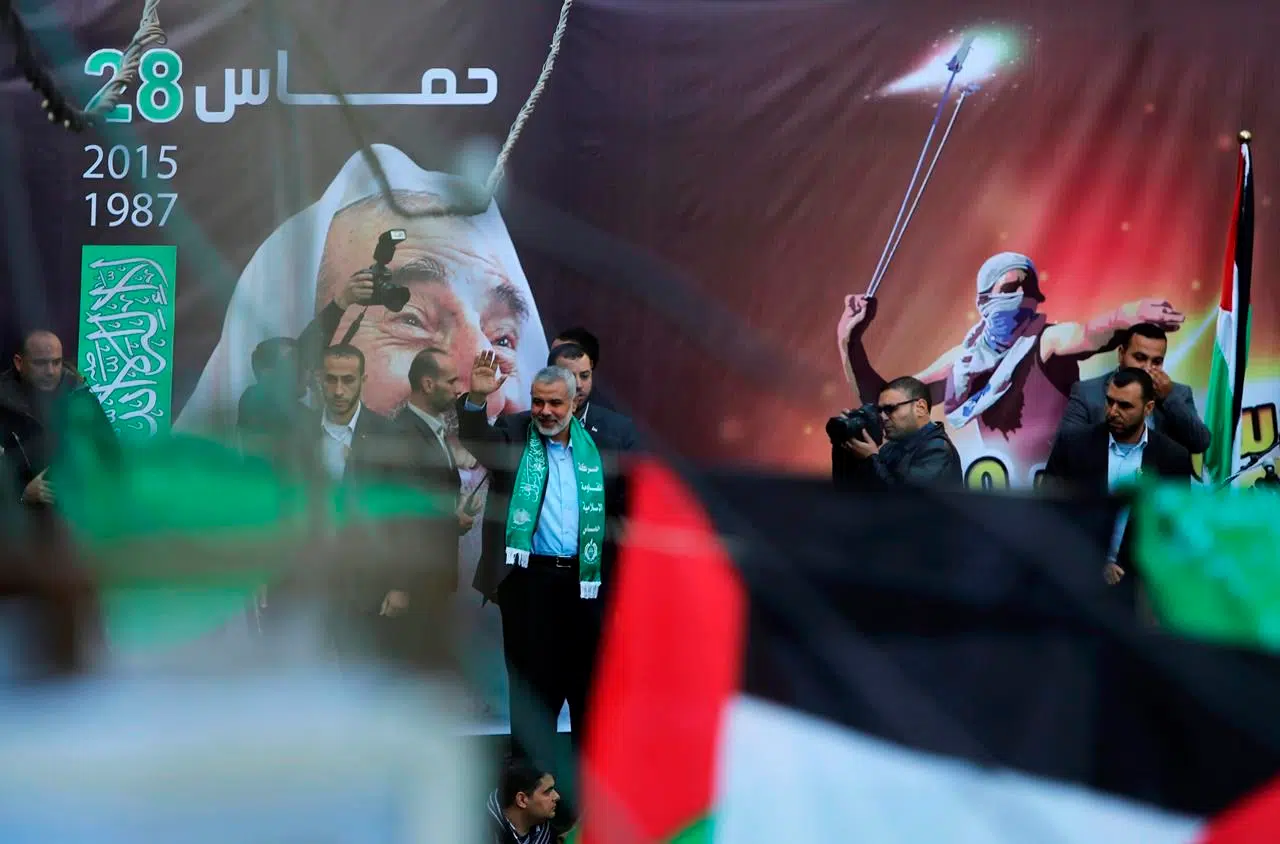
Hamas aims to improve international image with new program
GAZA, Palestinian Territory — The Islamic militant group Hamas has drafted a new political program it hopes will improve ties with neighbouring Egypt and the West, and present a more moderate image that will help it get off Western terrorism lists.
The internationally isolated group, which has ruled the Gaza Strip for the past decade, characterizes itself in the manifesto as a Palestinian resistance movement against Israeli occupation, dropping references to holy war against Jews. It also raises the possibility of a Palestinian state in the West Bank, Gaza Strip and east Jerusalem, lands Israel captured in the 1967 Middle East war.
The document plays down ties to Hamas’ parent movement, the regional Muslim Brotherhood, which is being targeted by Egypt’s government as a terror organization.
However, Hamas appears to have stopped short of a significant ideological shift amid concerns about alienating its hard-line base at a time when ultra-fundamentalist Islamist groups, such as the Salafists, are making inroads, particularly in Gaza.


